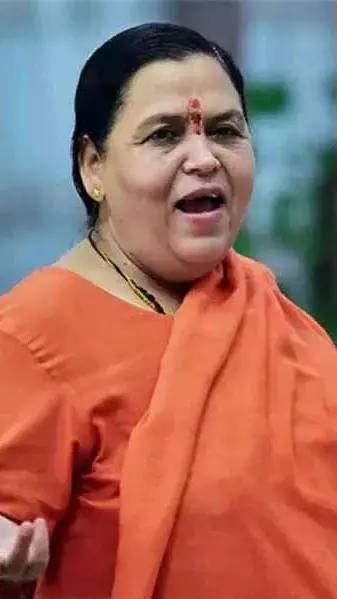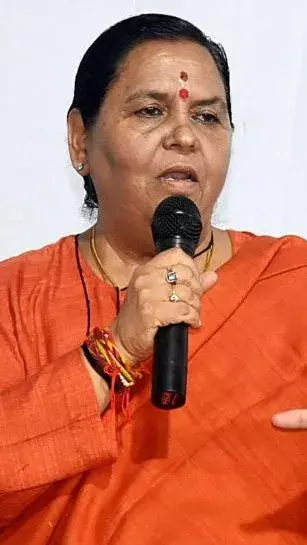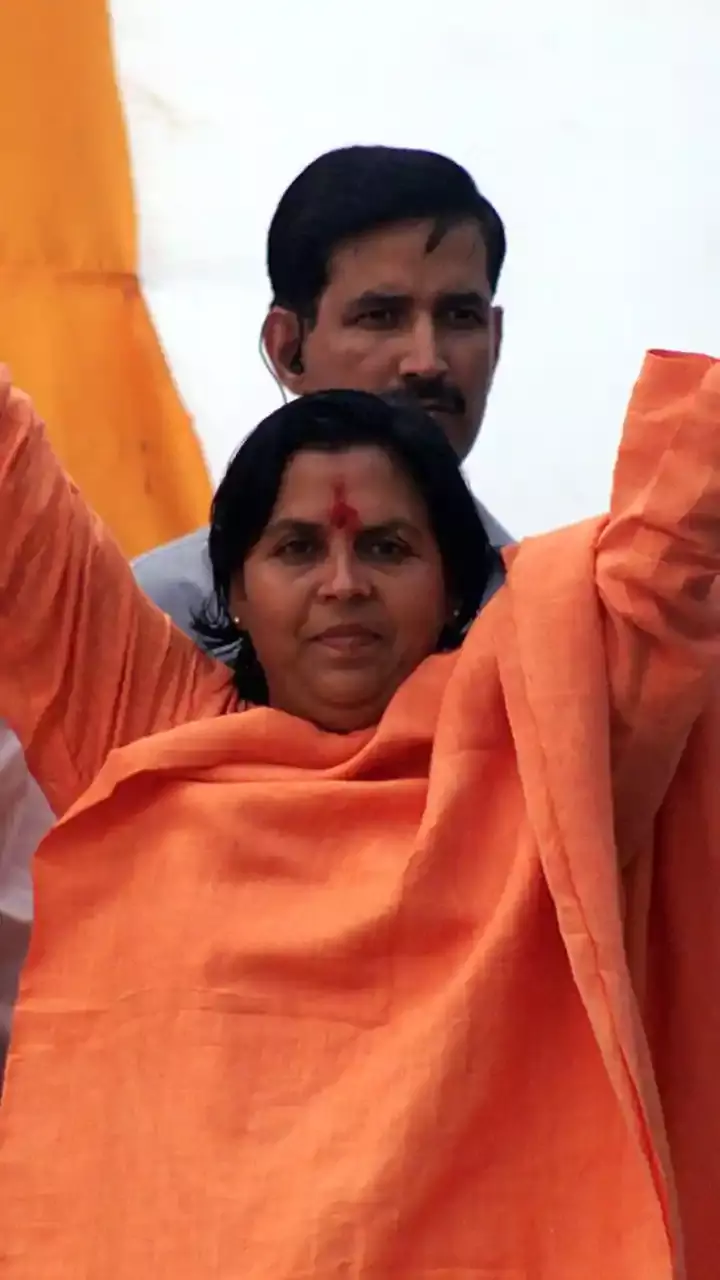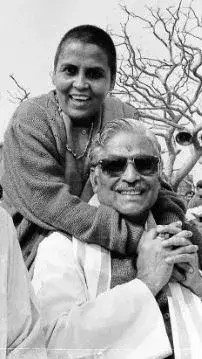
Uma Bharti: The Trailblazing Journey of a Hindutva Icon in Indian Politics

Uma Bharti was born on May 3, 1959, in Tikamgarh, Madhya Pradesh, India. She was raised in a humble family background.

Bharti's political career began at a young age when she joined the Rashtriya Swayamsevak Sangh (RSS) and later became associated with the Bharatiya Janata Party (BJP).

Bharti gained prominence during the Ram Janmabhoomi movement in the 1980s and 1990s, actively participating in the campaign to build a temple dedicated to Lord Ram at the disputed site in Ayodhya.
In 2003, Uma Bharti became the Chief Minister of Madhya Pradesh, making her the first female Chief Minister of the state. However, her tenure was short-lived, as she resigned from the post in 2004 following controversy.
Bharti is known for her advocacy for environmental conservation, particularly for her efforts to clean and rejuvenate the Ganga river.
She has held several significant positions within the BJP, including serving as the National Vice President of the party.
Bharti has faced legal challenges throughout her political career, including charges related to the Babri Masjid demolition case and others. However, she has denied any wrongdoing.
Apart from politics, Uma Bharti is also a writer. She has authored several books, including autobiographical works and writings on political and social issues.
Despite facing setbacks, Bharti has made multiple comebacks in politics, continuing to play an active role within the BJP and participating in various state and national-level campaigns.
Known for her fiery and outspoken personality, Uma Bharti is considered a charismatic leader within the BJP and has garnered both praise and criticism for her strong stance on various political and social issues.